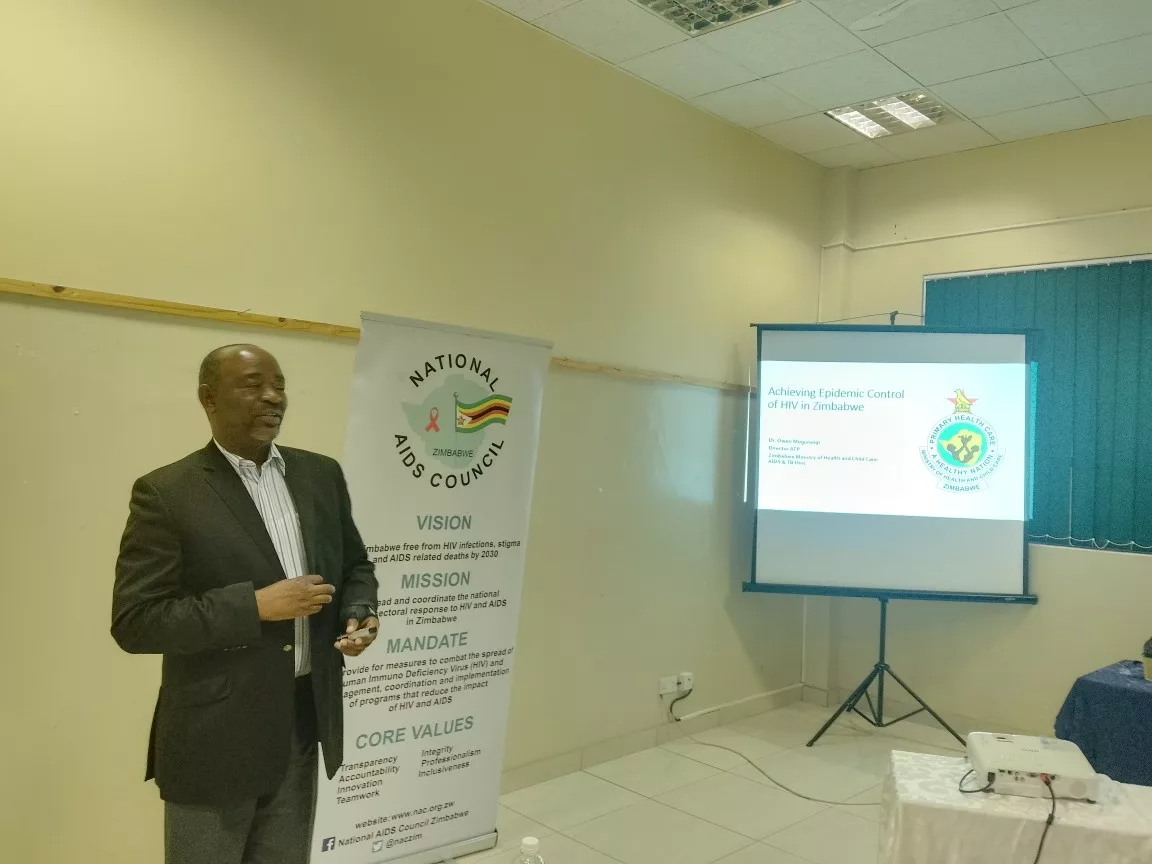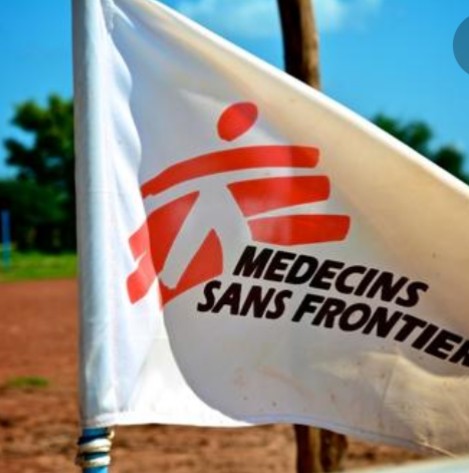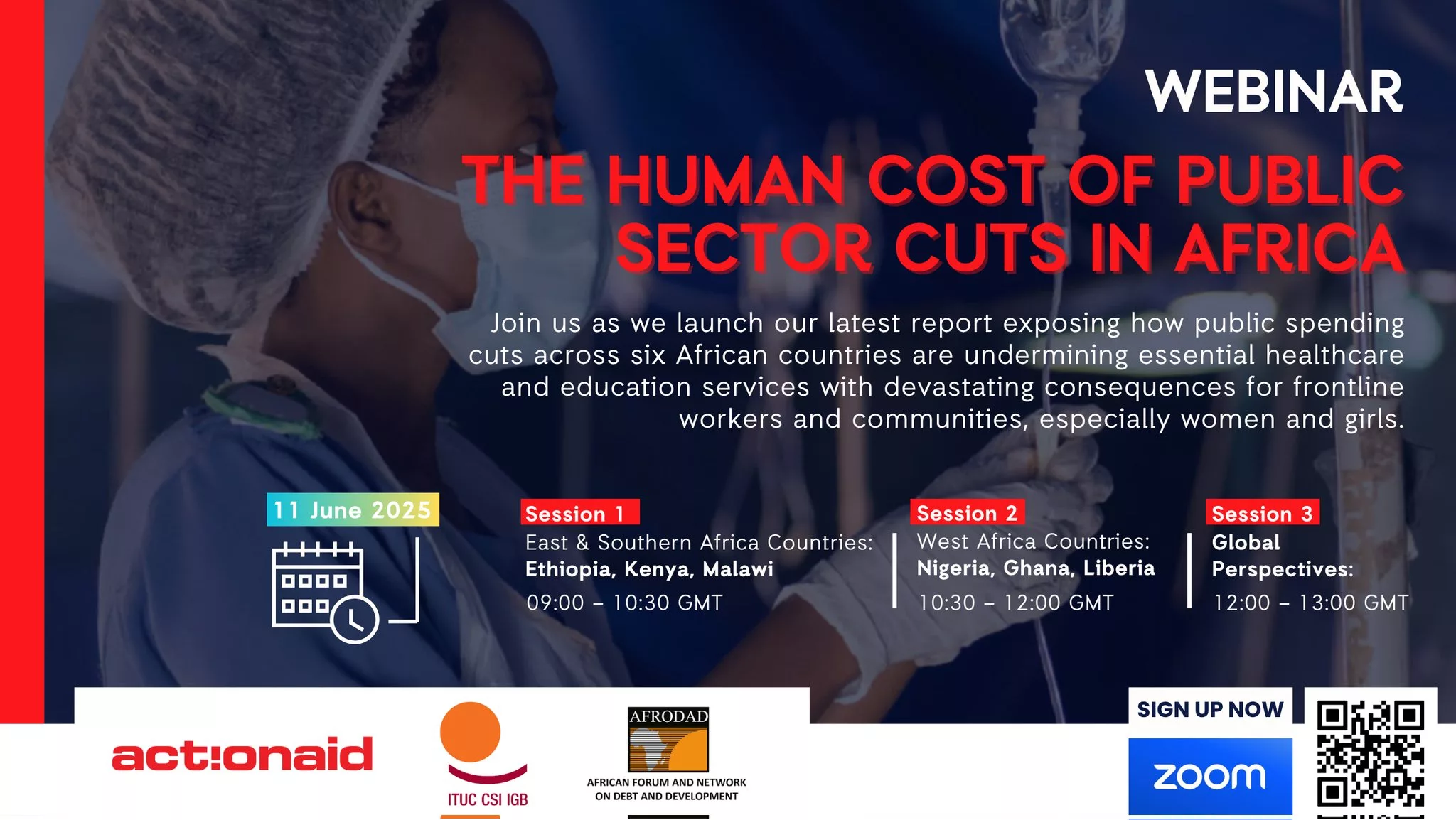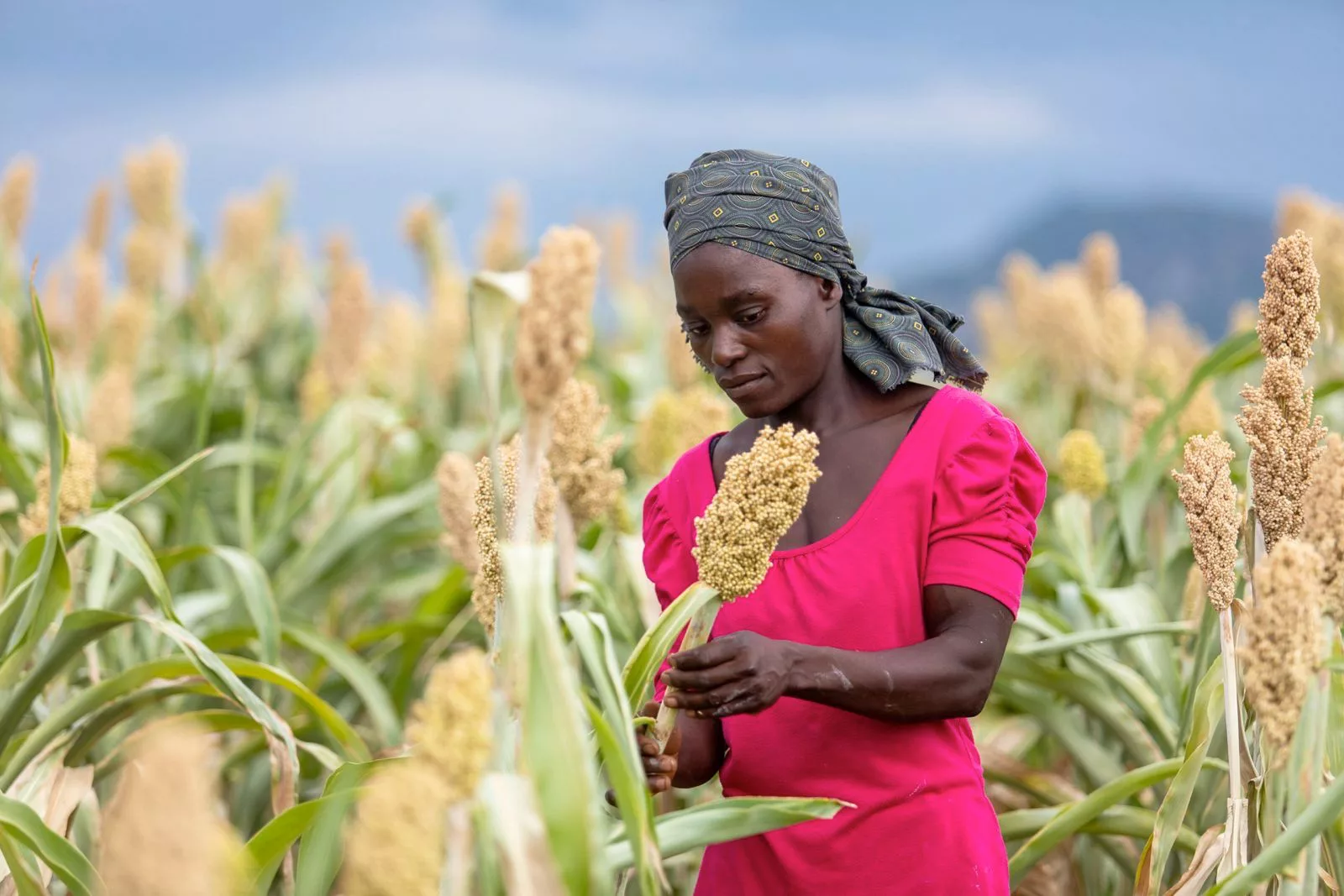In pursuit of achieving HIV epidemic control, Dr. Owen Mugurungi, the Director of the AIDS and TB Unit in the Ministry of Health and Child Care, has encouraged healthcare practitioners to offer integrated, people-centred, differentiated services.
He was addressing a two-day media workshop for editors and station managers that was organised by the National AIDS Council (NAC) to update them on the response to HIV and related conditions that kicked off in Chinhoyi today.
Dr. Mugurungi hailed the fact that in Zimbabwe, 96% of people living with HIV have achieved viral load suppression but insisted that stakeholders still want that to be nearly 100% or at least 99%.
“Now, as I said, people living with HIV are also part of the communities that access our services. So we want them to have access to integrated client or people-centered, differentiated services. When we say differentiated, we are saying that, at my age, the things that I require in terms of sexual and reproductive health are different from a 19-year-old or 25-year-old.
“So when you see me, yes, we talk about HIV and AIDS because I’m still sexually active. For me, you can also talk about prostate cancer and other things, right? For 19 or 25 year olds, we talk about other things. So that’s the differentiating. It’s not always the same. We all have different requirements. Assuming that we are getting the services from Chinhoyi Provincial Hospital because we stay in this town, we can have everything done within an hour or 2 hours.
“For someone coming from Karoi, it’s different for somebody who’s coming within walking distance. So that’s the differentiated service. When you say integrated, I said it’s making sure that there is information on sexual reproductive health services as well as non-communicable diseases. But for us to achieve that, there are challenges,” Dr. Mugurungi said.
He emphasized the need to prioritize key populations such as sex workers, addressing attitudes towards them, as well as stigma and discrimination.
“Some think sex work is immoral. There are different perceptions, but at the end of the day, they are human beings who want a service. When you are providing a service, you also want to make sure that they are comfortable and they can talk to you. So we need to make sure that we provide a conducive or supportive environment,” he added.
Speaking to the senior media managers, Garikai Muchemwa, a UNDP programme officer, said the UNDP partners with the Global Fund, governments, and civil society to defeat HIV, Tuberculosis, and Malaria and achieve a more equitable, healthier, and sustainable future.
He said the partnership strengthens national capacities to deliver essential health services, leave no one behind, and build stronger and more resilient systems for health, including in countries facing insecurity, crisis, or other capacity constraints.
“We have three integrated areas of work. Through Health Implementation Support, we offer end-to-end support tailored to national health strategies, plans, capacities, and contexts to deliver essential services for HIV, tuberculosis, and malaria prevention, diagnosis, and treatment.
“The Capacity Development for Health builds national capacities to improve the performance of health systems and ensure the quality, equity, efficiency, accountability, resilience, and sustainability of health programmes.
“The section on Laws, Policies, and Regulatory Frameworks promotes human rights and enables legal and policy environments for vulnerable and marginalized populations to access quality health services,” Muchemwa said.
The UNDP Global Fund Partnership has been a cornerstone of Zimbabwe’s remarkable progress. Since 2003, Global Fund has invested over US$2, 3 billion and has newly approved a 3-year (2024-2026)US$436, 970, 984 HIV grant to Zimbabwe.






